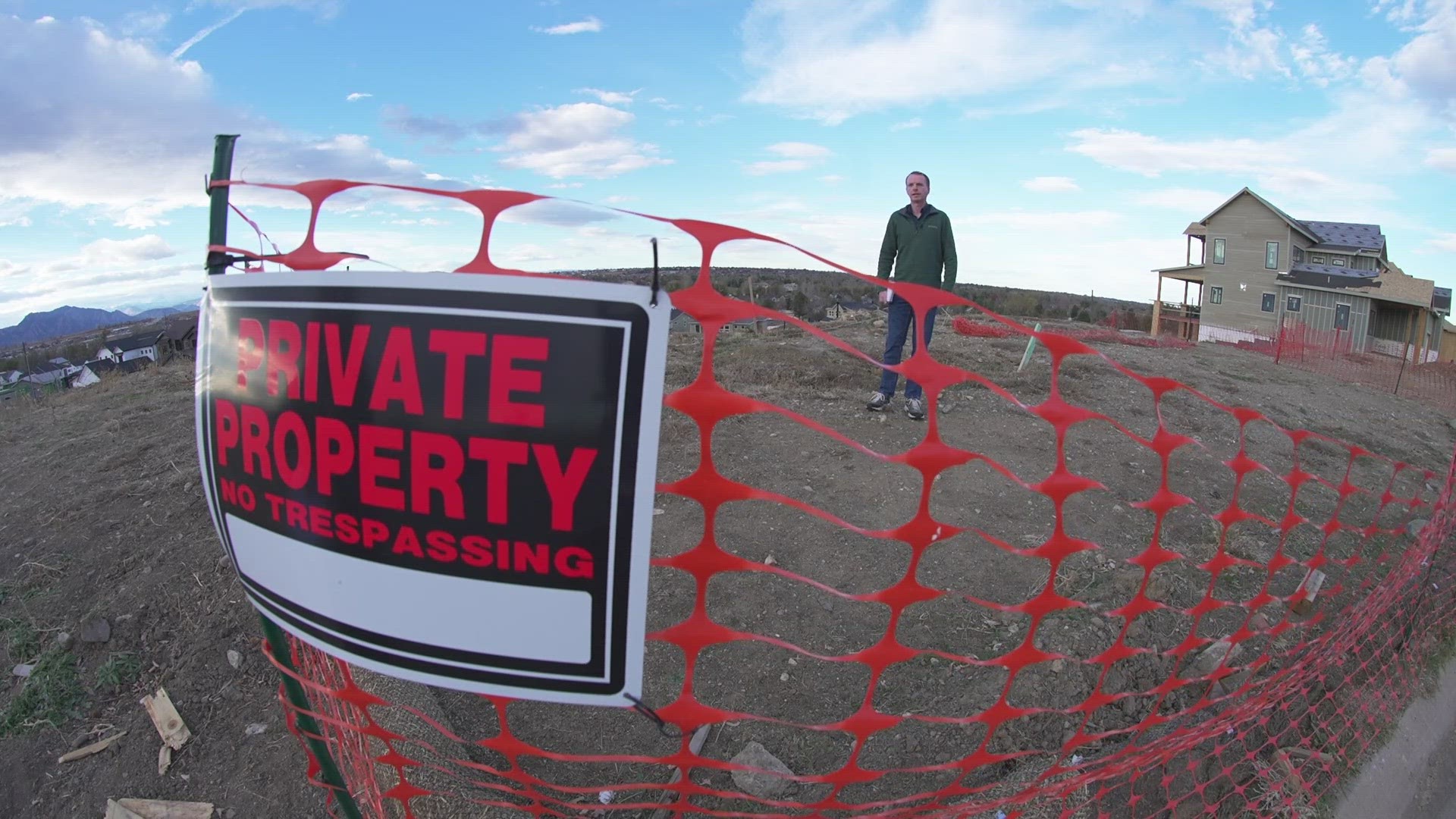BOULDER COUNTY, Colo. — The clock is running out on a critical resource that helps families who lost their homes in the Marshall Fire.
Most who chose to rebuild haven't moved back into their homes. And for many, the insurance money covering their living expenses in the meantime is about to expire.
Last month, three members of Colorado’s Democratic Congressional delegation sent a letter to ten insurance companies asking them to consider extending Additional Living Expenses (ALE) coverage to 36 months.
Many insurers already extended coverage from 12-month policies to 24 months after it became clear late last year that many homeowners still weren’t back in their homes.
Now, nearly two years later, the building process for hundreds of homes continues to see delays. According to the rebuilding dashboards for the City of Louisville, the Town of Superior, and unincorporated Boulder County, a little more than 200 homes have been granted certificates of occupancy, among the more than 1,000 homes destroyed by the fire.
“We knew with this amount of homes being lost, we’d need to act quickly,” said Paul Waterhouse, who lost his Louisville home in the fire.
Within months, he was already having conversation with builders and designers and had begun the permitting process. But then something else caused a major delay: a retaining wall behind his home and four others on his cul-de-sac, destroyed by the fire, that would need to be rebuilt.
“Some of the support structure goes underneath my foundation, so my build has to be coordinated with the wall build. So I have to build at the same time as wall construction. Some others have to wait until the wall is complete,” he said.
And getting that done has been a very expensive , complicated and time-consuming project.
“It’s obviously been very frustrating. Its like I’m doing a second part-time job,” he said. Come January, Waterhouse’s ALE coverage on his insurance plan runs out.
“We reached out to our [insurance] company and our agent has been really good. He also wrote a letter on our behalf saying it wasn’t us that delayed the build, it’s this retaining wall that’s delayed us. And unfortunately, they replied back saying the policy is two years.”
Waterhouse said without that coverage, he’ll be on the hook for not just his ongoing mortgage payments – but also the rental house payment and rented furniture starting in January.
“For us it will be close to $100,000 for the year.”
Erik Ela is also looking at a January deadline for his ALE coverage. His family lost their Sagamore neighborhood home in Superior. They’re further along in the rebuilding process, but still months away from completion.
“I think with us, when we really decided we are rebuilding, we went through so many builders. So many different architects. Had a floor plan, that didn’t work out. Spent all this time putting that together, then had to go through another one,” he said. “If we’re going to do this, let’s try to do it right.”
As they approach the end of their ALE coverage, Ela is working with his insurance to ask about an extension.
“If not, we’ll still be living in our [rental] home and we’ll be having to pay our rent for that rental home.”
Its their second rental home in the two years since the wildfire, while also raising a toddler. The family is excited about their new home — a highly energy efficient home, called a “passive house.” Plus, they love the location and are happy to be staying there.
“We just miss being here. It will be different. Very strange to walk in, two and a half years later. Lots has changed since last time we were in our old home.”
According to the Marshall ROC, a long-term recovery group, 60-70% of households are still displaced after the fire, and most will continue to need support from ALE. The group said they have some donors who have committed money to support families, but not enough to cover the full need.
A spokesman for the Colorado Division of Insurance said the state remains in communication with the insurance industry asking them to help as they can with Marshall Fire survivors. The state shared these tips, regarding ALE, earlier this year:
- If the rebuild is progressing and you have an estimated date of completion that will fall after Dec. 31, 2023, contact your insurance adjuster to discuss and request an extension of ALE benefits. Often, if the insurer sees there is an end date in sight, they may consider additional coverage. Keep the insurer apprised of the progress you are making when making a request for an extension and give the insurer a specific date of expected completion.
- You may want to consider working with your insurance company to extend your remaining ALE benefits by reducing the amount you currently receive in exchange for an extension on the time you will receive it. For example, if you are currently receiving $6,000 per month and have six months left, ask if they can send you $3000 per month for 12 months.
- You may also want to discuss with your insurer an option to cash out your remaining ALE benefits as a lump sum payment so that you can decide the best way to use or extend the money.
- If you do not have a contractor in place and/or your rebuild has not begun, it is unlikely the company will extend ALE. However, if the process has been unnecessarily delayed by the insurance company, you can ask the company to extend for the number of days or months in which it unnecessarily delayed the claim process. Contact the DOI Consumer Services team at 303-894-7490 or DORA_Insurance@state.co.us if you need help determining if your company has caused unnecessary delays.
SUGGESTED VIDEOS: Marshall Fire families

